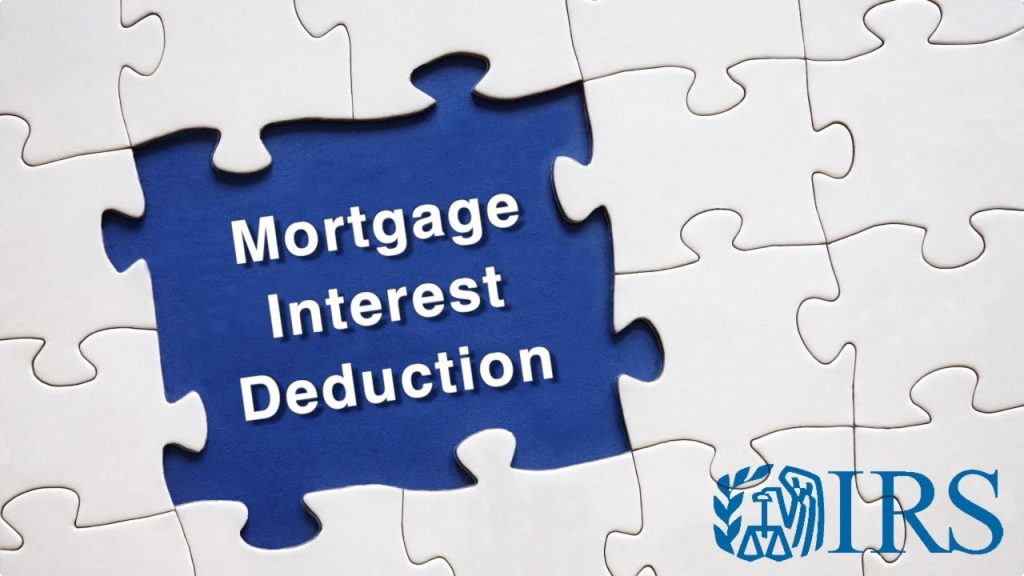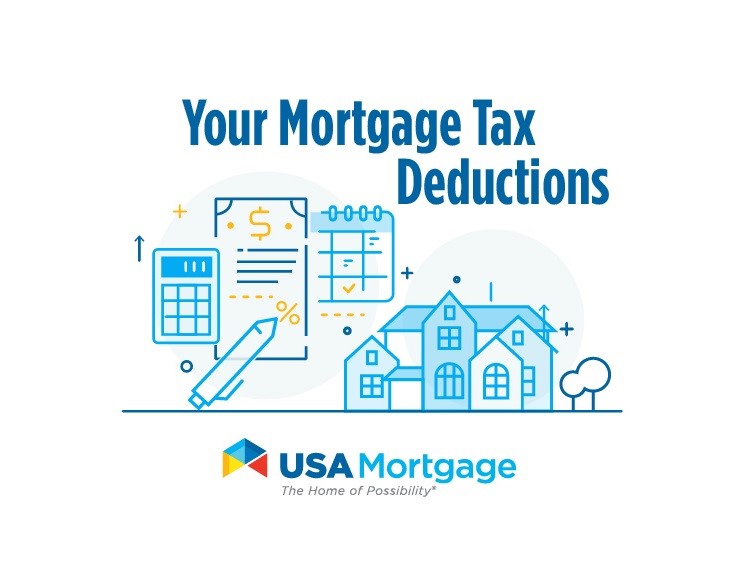Can you Deduct Mortgage Interest on Investment Property?
Are Mortgage Payments On a Rental Property Tax Deductible?
September 29, 2022Best way to get a Mortgage for Investment Properties over $1,000,000
September 30, 2022
Do you own an investment property, and are you wondering whether you are eligible for a mortgage interest deduction? This article will give an explicit answer to the question of mortgage interest deduction on an investment property. There are fees that you can write off on your tax return if you own rental property and receive rental revenue from it. These include maintenance, property taxes, depreciation, replacement, and mortgage interest. A tax incentive for homeowners for rental property is the mortgage interest deduction.
Mortgage Interest Deduction
The mortgage interest deduction is a typically categorized deduction that enables homeowners to exclude from taxable income the interest they pay on any loans used to finance the construction, acquisition, or improvement of their property. Loans for second and vacation homes are also eligible for the mortgage interest deduction, subject to certain restrictions. This deduction is provided as a benefit to homeowners.
Homeowners can reduce their tax liability by taking the mortgage interest deduction. The mortgage interest tax deduction was first offered in 1913, the same year that the income tax was first introduced, and since then, it has grown to be the tax break of choice for millions of American homeowners. As long as they adhere to certain guidelines, some homeowners can reduce all of the mortgage interest they have paid. The mortgage payments’ date, quantity, and purpose all affect the deduction amount that can be claimed.
All mortgage interest may be written off as long as the homeowner’s mortgage meets the requirements for the entire tax year. Mortgages obtained prior to a date established by the Internal Revenue Service (IRS) qualify as legacy debt and are thus eligible for the deduction.
Prior to October 13, 1987, there were no restrictions on mortgages. It follows that any sum of mortgage interest can be written off as a tax deduction. Mortgage payments are deducted on the first $1 million ($500,000 for married taxpayers filing separately) of loans made between October 13, 1987, and December 16, 2017, as well as residences sold before April 1, 2018. The sales contract for the second must have been signed by December 15, 2017, and the closure must occur by April 1, 2018.
Only mortgages guaranteed by a deed of trust, mortgage, or land contract that holds the landlord’s ownership of an eligible residence as collateral for the debt’s payment and other terms are eligible for the mortgage interest deduction.
Any costs you incurred to secure the mortgage on your rental property are not deductible, but you can include them in your cost basis in the asset. These costs include:
- Legal fees
- Mortgage commissions
- Surveys
- Appraisal
- Title insurance
- Recording fees
- Charges for installing utility services
- Transfer taxes
- Taxes that the seller owes but that you agree to pay, such as mortgage fees, costs for upgrades or repairs, and sales commission.

Categories of Properties Qualified for Mortgage Interest Deduction
There are rules you must follow before you can be eligible for a mortgage interest deduction. The rules are more difficult if you rent out the house for a portion of the year or all of it. What counts is how much is used for personal vs. rental purposes. If the IRS considers the residence an investment property, you cannot receive the mortgage interest deduction, but you may deduct mortgage interest as a business cost to reduce your rental revenue. However, depending on the use of your property, you may fall into the following category for the mortgage interest deduction.
1. Use frequently, Rent infrequently
If you rent your house for 14 days or less during the tax year, you are exempt from reporting rental revenue to the Internal Revenue Service (IRS). Since the home is regarded as a primary residence, you cannot deduct costs associated with renting it out, such as utilities and marketing. However, as with any other home, you can write off mortgage interest and property taxes. Additionally, the home will be classified as a personal residence rather than an investment property should you decide to sell it.
This law still holds true even if you charge $10,000 a night to rent your house. The money is exempt from gross income inclusion under Section 280A(g) of the Internal Revenue Code if you rent the house for fewer than 15 days annually.
2. Rent frequently; use sparingly
If any of the following conditions are met, your home will be regarded as a rental property:
- You utilize the residence no more than 14 days per year or 10% of the days it is rented
- You rent it out for more than 14 days per year.
Because the house is regarded as a business, you can deduct rental charges such as mortgage interest, property taxes, insurance premiums, property manager expenses, utilities, and depreciation on the property. To be taxed as regular income by your tax rate, all income derived from the property must be reported as rental income.
It should be noted that maintenance and repair days do not account for personal usage days. Therefore, if you remain at your home while repairing, the 14-day limit may be exceeded. Consider keeping receipts as proof that you performed maintenance work on those days. If you use your second property for both personal and rental reasons, you must divide your overall costs between personal and rental usage according to the period you used it for each.
3. Rent some, use some
If you do any of the following, your second home will be considered a primary residence and not a rental property:
- Rent it out for more than 14 days per year.
- Use it for a lengthier period than the larger of 14 days or 10% of the total number of days the property was rented
Therefore, like any other home, you may write off your mortgage interest and property taxes. Rental expenses are only deductible up to rental income; rental losses are not deductible.

Can You Deduct Mortgage Interest on Investment Property?
The mortgage interest deduction is a tax break for homeowners that occasionally extend to real estate used as a rental property. You can deduct certain expenses from your taxable income if you own and receive rental revenue. These consist of maintenance costs, property taxes, depreciation, upkeep, and mortgage interest. You can use the mortgage interest deduction to lower your taxable income by the total mortgage interest paid during the tax year. A loan must be spent to purchase, construct, or improve the property to be eligible for this deduction. It must be related to an eligible primary or secondary residence up to the allotted sum.
The mortgage interest deduction allows homeowners to deduct the interest they pay on home loans. Those loans can be used to buy, build or even improve the property; provided the debt is tied to their personal, residential real estate, it probably qualifies.
It should be noted that only your interest payments are eligible for deductions in this situation; the loan’s actual value is not. It is among the most widely used provisions of the tax code. In 2016, Americans deducted mortgage interest to almost $77 billion. Although the mortgage interest deduction is not accessible to investment properties, it can be claimed as a business cost on Schedule E of your tax return to reduce your taxable income. Albeit, the main justification for the mortgage interest deduction is to remove barriers to homeownership.
Some common deductible interest payments for owners of rental properties are:
- The mortgage interest paid to purchase the rental property
- Mortgage interest payments used to upgrade the rental property
- Credit card interest paid on purchases of goods or services used in the rental business
- Amounts owed on personal loans used to pay for products rented out.
Mortgage Interest Deduction Limitations
The amount of company interest expenses that can be written off has several restrictions. The “section 163(j) limitation” was enacted in 2018 and imposed certain restrictions. This caps a taxpayer’s deductions for business interest at a maximum of;
- 30% of the taxpayer’s adjusted taxable income for that year.
- The taxpayer’s business interest income for that year.
- The floor plan financing interest for that year.
Only 30% of all enterprises with average annual gross receipts of $26 million or more during the previous three years are eligible to deduct interest payments. Owners of rental properties who make more than this amount can opt-out of this and deduct all their interest costs annually by including an option on their tax returns. There are other significant tax deductions offered if you own rental property outside mortgage interest.
You can also deduct regular costs associated with running and maintaining the property, including insurance, utilities, advertising, travel costs, and supplies required to keep the place up and maintained. However, you cannot write off costs incurred to enhance the property. You can claim a percentage of these expenses using Form 4562 in the year you completed the renovations or added the furniture to your home. To minimize taxable income, it is vital to emphasize that the mortgage interest deduction is not allowed for investment properties.

What Qualifies as Mortgage Interest?
According to the IRS Publication 936, the following requirements qualify you for mortgage interest.
Interest on a mortgage for your main home
- The real estate could be a home, a co-op, an apartment, a condo, a mobile home, a house trailer, or a houseboat.
- The house must serve as loan collateral.
- The house must have areas for sleeping, cooking, and restroom.
- You are still eligible to write off the interest on your mortgage if you receive a nontaxable housing allowance from the military or the ministry.
- A mortgage taken out after a divorce to “buy out” your ex’s share of the property.
Points you paid on your mortgage
Points function as prepayment interest for your loan. If you meet all eight requirements, you can deduct points in small amounts throughout your mortgage or do so all at once. The eight requirements include:
- The mortgage must be for your primary residence,
- That paying point is a common practice in your community
- That the points are not unusually high
- That they are not for closing costs
- That your down payment is greater than the points
- That the points are calculated as a percentage of your loan
- That the points are on your settlement statement
- That you file your taxes using the cash method of accounting.
Late payment charges on a mortgage
If a late payment fee wasn’t incurred for a given service related to your home loan, you could write it off.
Interest on a mortgage for your second home
- The house doesn’t have to be used all year.
- The home must serve as loan collateral.
If you rent out your second house, you must have lived in the house for the greater of at least 14 days or more than 10% of the period you rented it out
Prepayment penalties
If you pay off your mortgage quickly, you can be subject to a penalty, but you might also be able to claim the penalty as interest.
Mortgage insurance premiums
- These costs comprise the sums paid for private mortgage insurance, FHA mortgage insurance premiums, USDA loan guarantee fees, and VA funding fees.
- The insurance agreement had to be written after 2006.
- On Form 1040 or 1040-SR, line 8b, you cannot deduct the cost of mortgage insurance if your adjusted gross income is greater than $109,000 or $54,500 if you are married and filing separately.
- You can only deduct a portion if your adjusted gross income exceeds $100,000 ($50,000 if you’re married and filing separately).
Interest on a home equity loan
- You must purchase, construct, or “significantly improve” your home with the funds from the home equity loan.
- The interest isn’t deductible if the funds are used to purchase a car, settle credit card debt, or cover other non-housing-related expenses.

How to Claim the Mortgage Interest Deduction
Many investors do not know how to claim mortgage interest deductions or find it hard to claim them. The following processes outlined below will help you through easier.
- Search your mailbox for Form 1098
In January or the first week of February, your mortgage lender will give you a Form 1098. It
provides information about your mortgage interest and point payments made during the tax
year. The IRS receives a copy of that Form 1098 from your lender and will attempt to compare it to the information you disclose on your tax return.
If you paid the lender $600 or more in interest on a mortgage throughout the year (including points), you would receive 1098. The monthly bank accounts from your lender may also contain information on the mortgage interest paid so far in the year.
2. Keep good records
You could be entitled to write off your mortgage interest if you have a good record and meets the following criteria:
- You utilized a portion of the home as your workplace (you may need to fill out a Schedule C and claim even more deductions).
- You owned a cooperative apartment.
- A portion of your house was rented out.
- It was a timeshare property.
- Throughout the year, the home was built in part.
- You made investments, repaid debt, or did something unrelated to buying a home with a portion of the mortgage’s proceeds.
- During the year, your house was damaged.
- You and your ex have a divorce or a separation, and one of you is now responsible for paying the mortgage on a house you own (the interest might be deemed alimony).
- You and a person who is not your spouse owed mortgage interest on your home, and you both made the payment.
3. Itemize on your taxes
When filing your taxes, you must itemize your deductions rather than use the standard deduction since you claim the mortgage interest deduction on Schedule A of Form 1040. It might take more time to prepare your taxes, but if your standard deduction is lower than your itemized deductions, you should itemize and still save money. Take a regular deduction to save time if it exceeds your itemized deductions, which include the mortgage interest deduction. You can compute your deduction using Schedule A. You can follow the instructions with the help of your tax preparation program.
4. Check if you qualify for special deduction rules
The payments you made on your mortgage throughout the year might be fully deductible if you received assistance from a state housing finance agency’s “Hardest Hit Fund” program or an Emergency Homeowners’ Loan Program (administered by the state or the Department of Housing and Urban Development).
Conclusion
Back to the main question that most investors ask is if they can deduct mortgage interest on an investment property. The simple answer is NO. The mortgage interest deduction only applies to homeowners and rental properties, provided they meet the requirements. However, if you are unsure about your financial standing and eligibility, you should contact Aurum and Sharpe. Aurum and Sharpe is a lending company that offers mortgage loans and financial advice to residential homebuyers and property investors. To get started with Aurum and Sharpe, visit our website or contact us at 9177404325 to book an appointment today, or use the online form.
Mortgage Rates
Mixed Use: 7.685
Office: 7.685
Retail: 7.685
2-4 Units: 7.685
Multi-Family: 7.685
Portfolio of 2-4 family homes: 7.685
single family: 7.685
portfolio of single family homes: 7.685
Calculate Your Monthly Payment
Mortgage Information
Monthly Payment
Principal and Interest: $0
Total Monthly Payment: $0
